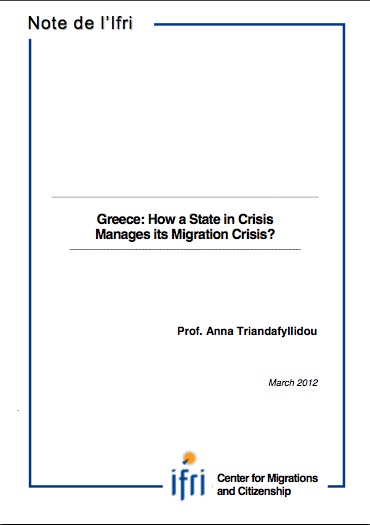Greece: How a State in Crisis Manages Its Migration Crisis

In the past 2 years, Greece has experienced its most severe economic crisis of the post-World War II period. While it appeared at first not to have been hit particularly hard by the global economic recession that started in 2008, the effects of the recession and the acute internal crisis of public finances became visible in late 2009.
In this paper, Prof. Anna Triandafyllidou argues that despite this crisis, Greece has taken important steps to encourage migrant integration into Greek society, and to address the problem of irregular migration as well as the thorny issue of asylum seeking, which had exposed Greece to strong criticisms in the past years.
She demonstrates that an internal crisis may also, paradoxically, provide a good opportunity to strengthen the migration policy framework, even if the implementation and the impact of the new measures taken will have to be monitored in the future.
This paper is part of the "Migration policies and international relations" publication series:
The impact of international migrations on the relations between states has been the focus of an extensive body of research and literature over the past two decades (e.g. on border control, labor market issues, transnational ties, etc.). Less an object of attention is the impact on international relations of states' responses to such issues - readmission agreements, visa policies, expulsions, etc. This program proposes to produce a series of on-line publications and public seminars on this issue.
Download the full analysis
This page contains only a summary of our work. If you would like to have access to all the information from our research on the subject, you can download the full version in PDF format.
Greece: How a State in Crisis Manages Its Migration Crisis




